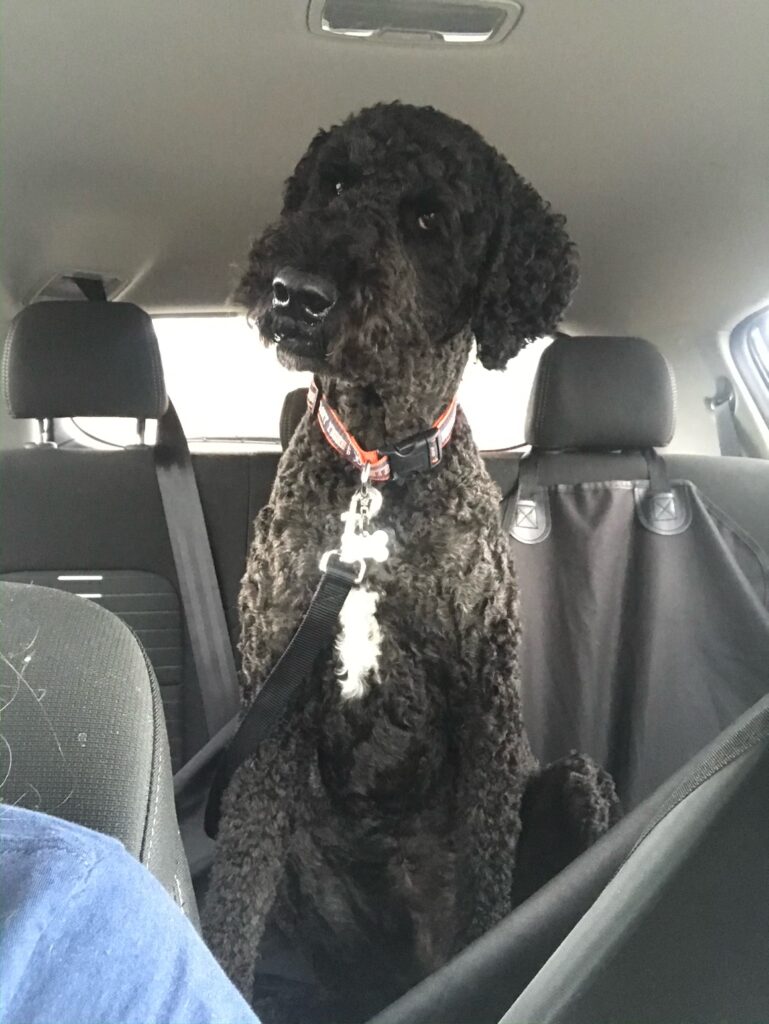It’s the most wonderful and chaotic time of the year. Between scurrying for Christmas gifts, traveling, and having a house filled with relatives, it makes a lot of folks wanna puke. Dogs also seem to act more sickly especially during extensive travel. With a lot of owners hitting the road with their pet this holiday season, many animals will experience motion sickness. Now, why is that? Well, I’m here to help answer that question for this month and to provide some ways to help prevent/treat this common problem.

Motion sickness is triggered by stimulation to the vestibular and autonomic nervous system, more specifically, the vestibular apparatus that lies within the dogs inner ear and has connections to the emetic center (the “vomiting area”) in the brain. Many puppies experience this compared to older dogs because it is suspected that parts of the inner ear are not fully developed yet. In fact, these puppies will normally “outgrow” the motion sickness once they have reached adulthood. Unfortunately, there are still dogs that can experience this problem despite their age.
Clinical signs of motion sickness will include whining, pacing, excessive drooling, excessive lip licking, lethargy, and of course, vomiting. To prevent this mess from occurring in your vehicle, dogs can be placed on anti-anxiety or anti-nausea medications during the transit. Some of these drugs include dramamine, trazodone, and acepromazine. Consult with your veterinarian first before administering these drugs so they can provide proper dosing to ensure a safe and calm ride. With that said, I hope for all of my clients and those reading this post that you have safe travels, a Merry Christmas, and a Happy New Year.
Dr. Edward G. Brauer III


Recent Comments